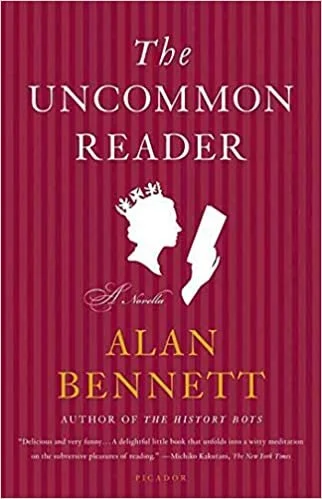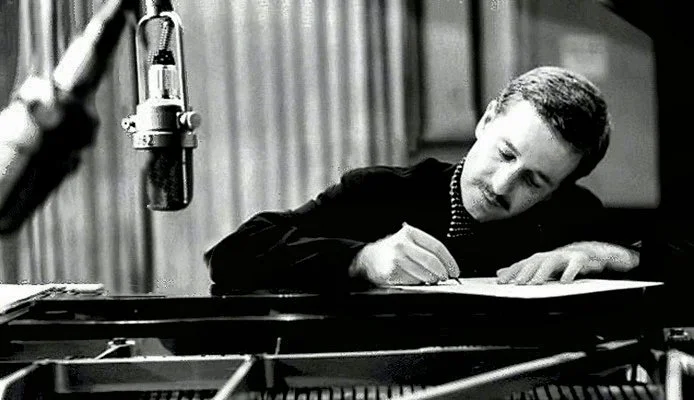Welcome
The Power of the Stroll
A real Wisconsin winter—with it’s snowfalls and freezing temperatures—has only been with us in fits and starts this year. So along with a few days of frosted windows and indoor hunker-downs, there are mild days with blue skies and snowless sidewalks. So there has been more opportunities for “strolling.”
This isn’t a dance move. It’s a way of being and moving when conditions are comfortable. My old dog Oliver doesn’t just prefer it, he demands it.
A stroll isn’t brisk, it is ambling and slow. It isn’t measured in heart rate readouts or average daily steps. For Oliver, it offers an olfactory survey of those who have “gone” before: in leaf piles, along fallen tree branches. There are riches in the damp paper of yard waste bags or the discolored stone at the base of lamp posts. These are scents to be savored and paused over, allowing the bipedal companion at the other end of the leash a chance to slow down and savor the sights. The slow-shifting light as dawn edges into morning. A hair-netted Amazon driver in a bumperless Oldsmobile making a “living” by dropping yesterday’s impulse buy on a front porch. An indecisive sky severed by strips of smokey clouds and crystal blue.
And trees.
There is something about urban trees. Forests have their own wild majesty. But neighborhood trees are here because they were invited. Someone wanted to look out a window and see the odd angles of Ginkgo branches in the sunlight. Someone wanted to clock the passing days by observing a maple’s journey from dark green to dusky crimson. Someone wanted oaks, blue spruces, tamaracks, and burning bushes. because they wanted more than lawn and asphalt and sidewalk.
To all you tree lovers, Oliver sends his thanks.
Ring a Ding Ding
There is lots of buzz about François Girard’s new staging of Richard Wagner’s Lohengrin, which opens at New York’s Metropolitan Opera this month. You can see it live, or on The Met’s video streaming service, along with video or audio recordings of productions dating back to the 1940s. If Wagner is on your watch list, you might be inclined to dive into Alex Ross’s exploration of Richard Wagner’s enduring legacy, Wagnerism: Art and Politics in the Shadow of Music.
If your interest in Wagner is limited to Bugs and Elmer Fudd cavorting in “What’s Opera, Doc?”, Ross offers a deep dive into Wagner’s world, and makes the case for the composer’s influence far beyond the opera house. Ross’s work for The New Yorker shows him to be a savvy listener and evocative writer. But the depth and breadth of Wagnerism shows him to be an impressive scholar as well. True, reading it isn’t exactly a breezy way to spend a snowbound afternoon. But it is full of fascinating insights into Wagner’s music and life. Its main achievement is his examination of the composer’s broad influence, showing how other artists, politicians and thinkers took to the operas and Wagner’s ideas in general. Despite the composer’s documented anti-Semitism (and often because of it), his influence on Western culture was considerable: from French Symbolist poetry to early 20th-century theater design to novelists like James Joyce and Willa Cather to Star Wars and Marvel Superhero movies.
And, of course, Wagner’s “Ring Cycle” lives on in tales of Frodo and Gandalf, and the various sequels and spinoffs that are still but a twinkle in the eye of some Hollywood producer.
An Imaginary Queen
So you’ve recorded and watched the funeral, finished the latest installment of The Crown, mooned or tut-tutted over Netflix’s Megan & Harry, and tackled Harry’s memoir Spare in your book group. If you’re still in need of a Royal Fix, it may be a good time to reincarnate the Queen Liz with a fictional version of her day-to-day life. If like me, you spent the weeks of royal hoo-ha with a firmly raised eyebrow, you’ll appreciate Alan Bennett’s wry and heartfelt alternative history, The Uncommon Reader.
In it, Her Majesty stumbles on a library bookmobile parked outside the palace one morning (when she’s out walking her corgis, of course), and befriends a young kitchen worker who frequents it. With his help, she discovers the joys of reading. She relishes it as an escape from her increasingly dull queenly duties. The Duke of Edinburgh and Her royal handlers, however, fear her new found bookishness will alienate her from the hoi polloi. Full of Bennett’s trademark wit (he is revered by Brits for his decades of work in television and theatre), it’s a lovely testament to the power of literature to elevate the life of even the loftiest of the lofty.
David Waggoner
A Poem for the Season
It’s an unusually balmy day as I write this. If you decide to take a walk, David Wagoner (1926-2021) wants you to get lost.
Lost
Stand still. The trees ahead and bushes beside you
Are not lost. Wherever you are is called Here,
And you must treat it as a powerful stranger,
Must ask permission to know it and be known.
The forest breathes. Listen. It answers,
I have made this place around you.
If you leave it, you may come back again, saying Here.
No two trees are the same to Raven.
No two branches are the same to Wren.
If what a tree or a bush does is lost on you,
You are surely lost. Stand still. The forest knows
Where you are. You must let it find you.
—David Wagoner, 1971
Mose
The album promises “words of wisdom from the jazz sage.” And that’s exactly what it delivers, in its own particular mid-’60s hipster language. I haven’t listened to Mose in a while, but discovered this old recording when cleaning out my record collection. So I’ve missed his particular white-guy, West-coast version of the blues. Like the opening verse of “Days Like This”:
I can't get with it
I'm just not right
All of my enemies
Must be out tonight
I'm just a calculated risk
They always told me
There'd be days like this
Or the brutal sarcasm of “Don’t Forget to Smile,” in which he chides an addict ex-girlfriend who wants him to use again. Or the classic opening of “Lost Mind” (written and originally recorded by Percy Mayfield).
If you would be so kind
To help me find my mind
I'd like to thank you in advance
Know this before we start
My soul's been torn apart
I lost my mind in a wild romance.
Be well, and have a good week.





